5 Minutes With Dr. Urvashi NaithaniVEEN Scene 014
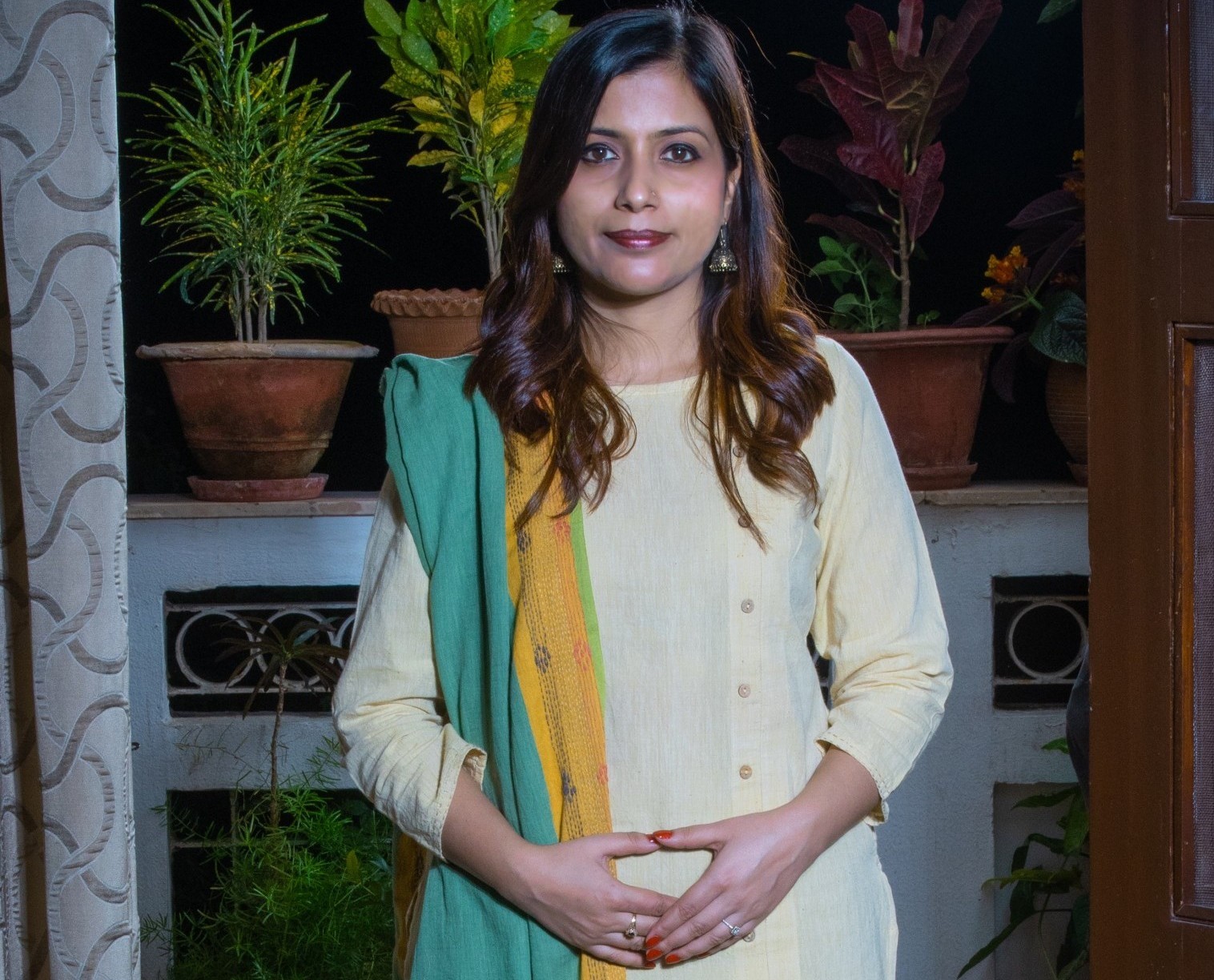
Dr. Urvashi Naithani is an Ayurveda physician based in Dehradun, the capital of the Indian state of Uttarakhand – nestled near the Himalayan foothills – a beautiful valley abundant in nature’s beauty and various herbs of medicinal values. VEEN partnered with Dr. Urvashi in creating the unique recipes for VEEN Ayurveda Waters and VEEN Ayurveda Super Shots.She is a passionate and professionally qualified Ayurveda doctor with a career spanning over 9+ years both in India and abroad, with notable achievements and experience.We caught up with Urvashi via Zoom call in December of 2020, to discuss the status of Ayurveda in a post-COVID world, importance of a holistic approach to health and healing, and more.
Where does your relationship with Ayurveda originate?
Coming from a family of specialists in modern medicine, I began to discern the need for holistic healthcare approach including healthy diet, lifestyle habits and accessing the power of nature. Thus began my journey on the holistic health and wellness realm. My first step towards this direction was pursuing Bachelors in Ayurvedic Medicine and Surgery from Government Ayurvedic college and hospital, Gurukul Kangri Haridwar, Uttarakhand in the year 2010, one of the oldest Ayurvedic colleges in the country.
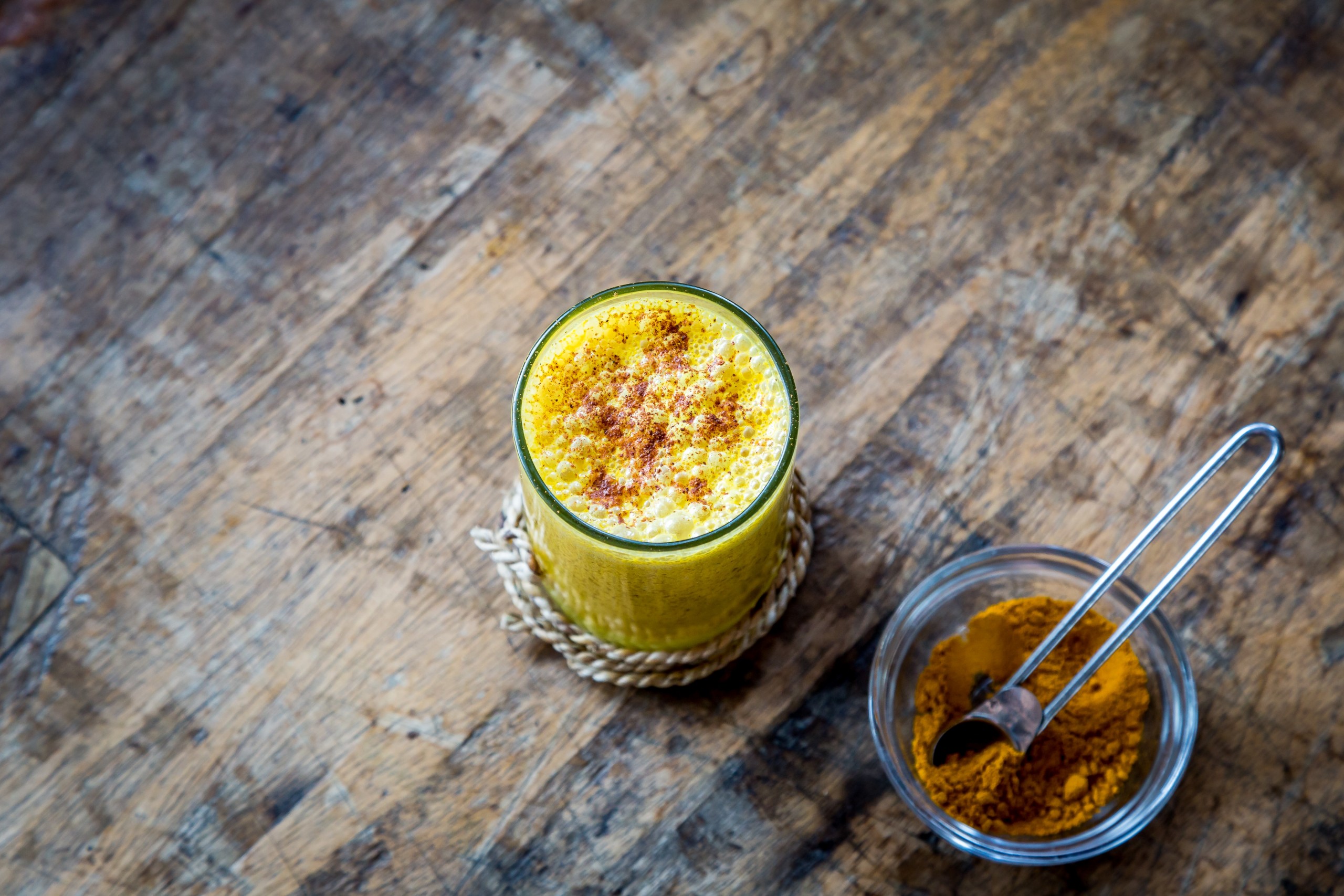
What kind of a career path has Ayurveda set you on?
After having spent more than a year working as a wellness consultant in India, I was soon head-hunted to successfully associate with a premium Ayurveda centre in Ho Chi Minh City, Vietnam in the year 2011. And in 2013 I moved back to India after having received an opportunity to be part of the pre-opening team of Vana, Dehradun one of the leading wellness retreats in the world. My long and rewarding tenure at Vana as Senior Ayurveda Specialist led me to explore Ayurveda avenue in depth.
My qualifications in Ayurveda, Yoga, Wellness coaching and Pranic healing along with several years of experience have enabled me to offer sustainable lifestyle guidance augmented by my innate sensitivity.
We need a crash course in Ayurveda. Give us the first 3 lessons.
1. Ayurveda, a Sanskrit word which literally translates as the science or knowledge of life, has universally applicable principles. It is a way of life and tackles the whole subject of LIFE in its various ramifications.
2. Ayurveda caters to each individual’s daily existence. It takes a holistic view of health, encompassing a balanced diet, healthy lifestyle, physical fitness, mental, social, and spiritual wellbeing for a disease-free, long and healthy life.
3. Ayurveda does not focus on symptoms but addresses the root cause. When you know what’s causing you to feel out of balance, you can simply refer to the suggested foods to eat or avoid, and lifestyle regimes to follow or avoid.
You also often speak of universally applicable principles in the context of Ayurveda. What do you mean by this?
Ayurveda is a way of life – a lifestyle which anyone can adopt irrespective of geography, culture, race and age. Fundamentally, everyone can benefit from the health and well-being that Ayurveda promotes. The principles of doshas (bioenergies), prakriti,vikriti (constitution),circadian rhythm, seasonal variations and the various physiological and pathological processes have universal applicability.
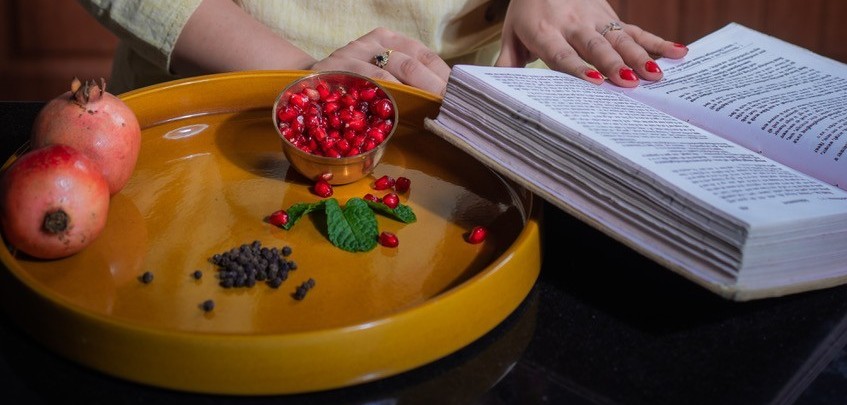
Ayurveda, you say, caters to each individual’s daily existence. How so?
Ayurveda takes an individualised approach and doesn’t follow the theory of ‘one size fits all. It encourages you to discover your individual needs, as well as grow, heal and reflect on your life in the most tailored way possible. Ayurveda does not focus on symptoms but addresses the root cause. When you know what’s causing you to feel out of balance, Ayurveda helps you to focus on reestablishing and maintaining balance of the bioenergies within you. How -? By simply referring to the suggested foods to eat or avoid, and lifestyle regimes to follow or avoid according to your dosha.
I don’t have a prior relationship with Ayurveda. Where do I start?
As they say, charity begins at home, I say Ayurveda begins at home.Ayurveda encompasses the healing of body, mind and soul through nutrition, lifestyle and rejuvenation. This art of holistic healing teaches that right food and lifestyle can make a vital contribution to good health. So, in order to understand Ayurveda one needs to start from understanding the concept of five elements Pancamahabhutas (space,air,fire,water and earth) which manifest in the human body as three basic humours known as tridoshas (Vata,Pitta and Kapha). When the tridoshas are balanced, the individual experiences wellness on all dimensions: mental, physical, emotional and spiritual. When out of balance, they cause illness and instability.
Each person is born with a unique combination of these doshas which decides their basic constitution called Prakruti. There is also a constitution “of the moment” reflecting one’s current state of health called Vikruti. Understanding of each person’s Prakruti and Vikruti for deciding their personal nutrition and lifestyle pattern, supplements, herbs and therapies that is right for them are among the main tools Ayurveda employs for the maintenance and restoration of health.
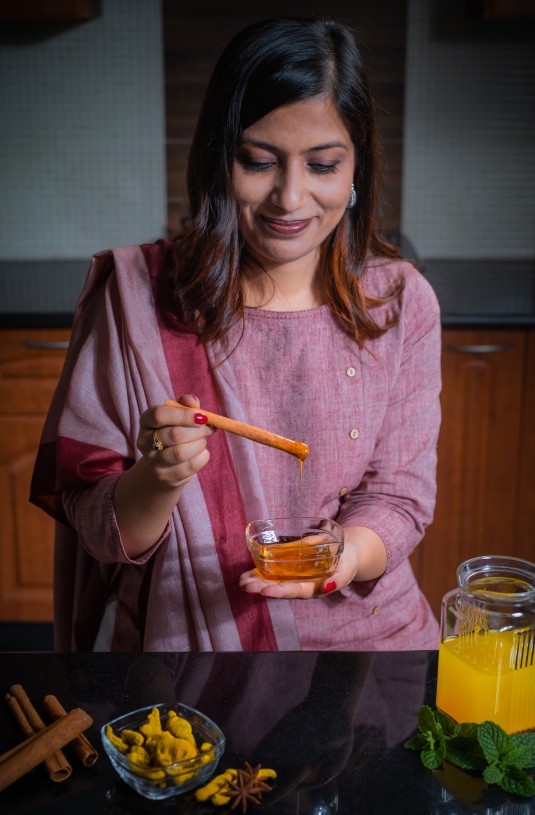
In the year of COVID-19, how does one pitch the healing science of Ayurveda to others?
Principles governing Ayurveda:
स्वस्थस्य स्वास्थ्य रक्षणं, आतुरस्य विकार प्रशमनं च । (चरक संहित सूत्र ३०।२६)
svasthasya svāsthya rakṣaṇaṃ, āturasya vikāra praśamanaṃ cha। (Caraka Saṃhita Sūtra 30।26)
Basically Ayurveda is not only therapeutic or curative but also health promotive, preventive and nutritive.
Similar to this concept of Ayurveda, the treatment of pandemic aims at both preventive and curative measures. Preventive measures help to keep the disease from taking its root into one’s body and mind and also limit the adverse effects of causative factors while therapeutic actions help to treat the condition in a proper manner once a person is afflicted.
In order to fight such pandemics, first and foremost one needs to build a strong immune system (ojas). Having a strong immune system helps to maintain proper physiological entities and keeps you protected against such diseases. Not only this, it helps you overcome the disease once it has taken its foothold.
As an Ayurveda Doctor, what has this pandemic taught you about physical and psychological well-being of humans?
Pandemics can be stressful and Covid-19 is no exception. Fear and anxiety about a new disease and what could happen can be overwhelming and lead to strong emotions. Public health measures such as social distancing and isolation can make people feel lonely and deteriorate their mental and emotional wellbeing. How one responds will depend on the strength of body, mind and spirit.
If you have a strong immune system then Covid-19 cannot get to you and in case you are afflicted your mental resilience can help overcome the phase strongly.
As a comprehensive system Ayurveda recognizes the link between body and mind and sees a person as a whole. To balance the elements and tridoshas there are therapies, herbs, yoga asanas and pranayam. For mental balance there is meditation and mantras; for the therapy of the soul positive visualization, affirmations and energy healing allow access to intuition and soul.
The year of 2020 has been about learning and perseverance. So, if one has not yet treaded the Ayurveda path, now is the time to do so.
What’s your favourite flavour/dish originating in Ayurvedic cuisine?
My favourite dish originating in Ayurvedic cuisine is khichdi (a mix of white rice and split lentils with certain spices ). Khichdi is tridosha balancing and also nourishes all the bodily tissues.
Buttermilk is a drink in Ayurveda I relish. It is not only a tasty drink but also immensely beneficial for digestion.
I ensure that khichdi and buttermilk are on my family’s weekly menu.
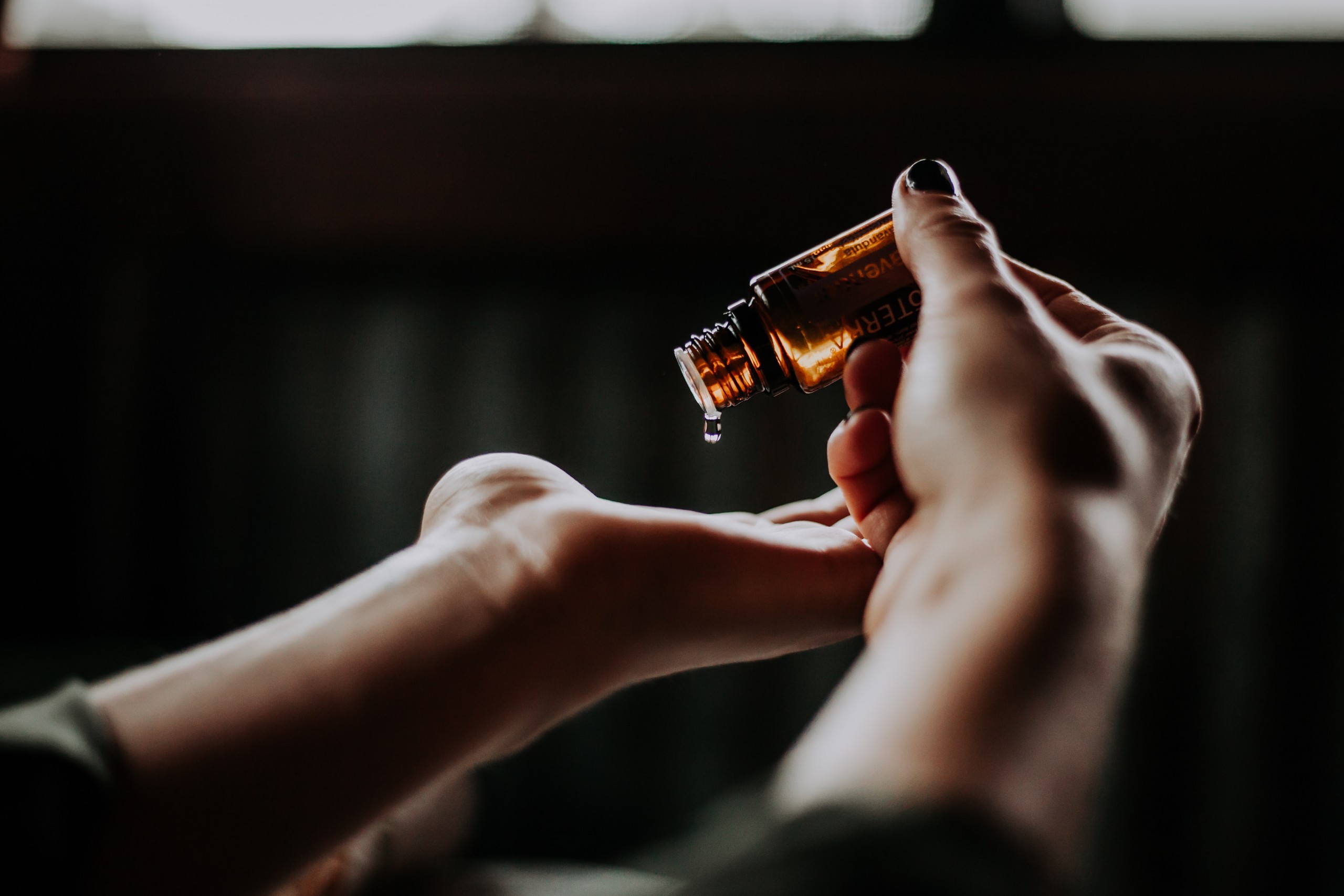
We read that in the US, the FDA does not evaluate Ayurvedic products before they are marketed. What status do Ayurvedic products enjoy worldwide? Is there a commonly accepted certification process or similar? How do Ayurvedic brands persuade the consumers of their quality and trust-worth?
US and FDA need not oblige or validate Ayurveda products. It is an officially recognized system of healthcare in India and hence all standards and certifications are India centric. In European and American countries Ayurvedic medicines are not recognized as drug but as food supplements or even health care aid including herbal cosmetics.
GMP, toxicity studies, MSDS (material safety data sheet) are the very basic standards for manufacturing Ayurveda products in India. These standards are sufficient to ensure that products are genuine.
Have you encountered any aspect / teachings of Ayurvedic Medicine which you personally do not agree with or would challenge?
Ayurveda is a colossal science I still consider myself a student of. Challenging this vast ocean of knowledge seems daunting. But of course as in every field there is always a scope of improvisation. There are ongoing efforts by Ayurveda scholars and enthusiasts in this direction. I wish to see Ayurveda in the best version of itself and in all its glory worldwide.
How can parents introduce Ayurvedic lifestyle and medicine to kids, any tips?
Kids are our legacy for the future. As a parent it is very important to inculcate right values and habits in our children. Ayurveda can be a boon to parents.
Just like adults, children have a unique balance of doshas, which is individual to each. However, childhood as a whole is considered a “Kapha phase”. Kapha is a building unit, which is required for growth and nourishment. One needs to understand that and tailor your child’s routine around that.
Introducing a routine is a salient step. Encourage your child to develop a morning routine like rising early, drinking water, clearing bowels, brushing, oil massage, gentle stretching and bath. Healthy eating habits, outdoor activities and proper sleep with right timings should be made part of their daily habits.
Natural home remedies are something which parents can use for their children, as and when required, like cumin, asafoetida, ginger, sesame oil, coconut oil etc.
By starting these habits early, children can reap the benefits of Ayurveda and we as a parent can give them the best gift of a lifetime of wellness.
Here I would like to share that I am a first time mother with a 4 months old baby. Thanks to my steadfast practice of Ayurveda and Yoga that I had a healthy pregnancy and a vaginal delivery with a relatively short labor at the age of 34. I practised pre and post pregnancy Ayurveda rituals and routine and do the same for my baby.
Congratulations on the new addition to your family! And we got the message, we’ll let you go here. May we ask you to wish the VEEN Scene readers a Happy New Year 2021, using terminology, concepts and keywords associated to Science of Ayurveda.
My wish for all the readers of VEEN scene and the world at large:
ॐ सर्वे भवन्तु सुखिनः।
सर्वे सन्तु निरामयाः।
सर्वे भद्राणि पश्यन्तु।
मा कश्चित् दुःख भाग्भवेत्॥
ॐ शान्तिः शान्तिः शान्तिः॥
Transliterated in English
Oṁ, Sārve bḥāvāntu sukḥināḥ
Sārve sāntu nirāṁāyāḥ
Sārve bḥādrāṇi pāśyāntu
Mā kasḥchit duḥkha bḥāgbḥāvet
Oṁ Shāntiḥ, Shāntiḥ, Shāntiḥ
Meaning in English
May All Be Prosperous and Happy
May All Be Free from Illness
May All See What Is Spiritually Uplifting
May No One Suffer In Any Way
Om Peace, Peace, Peace